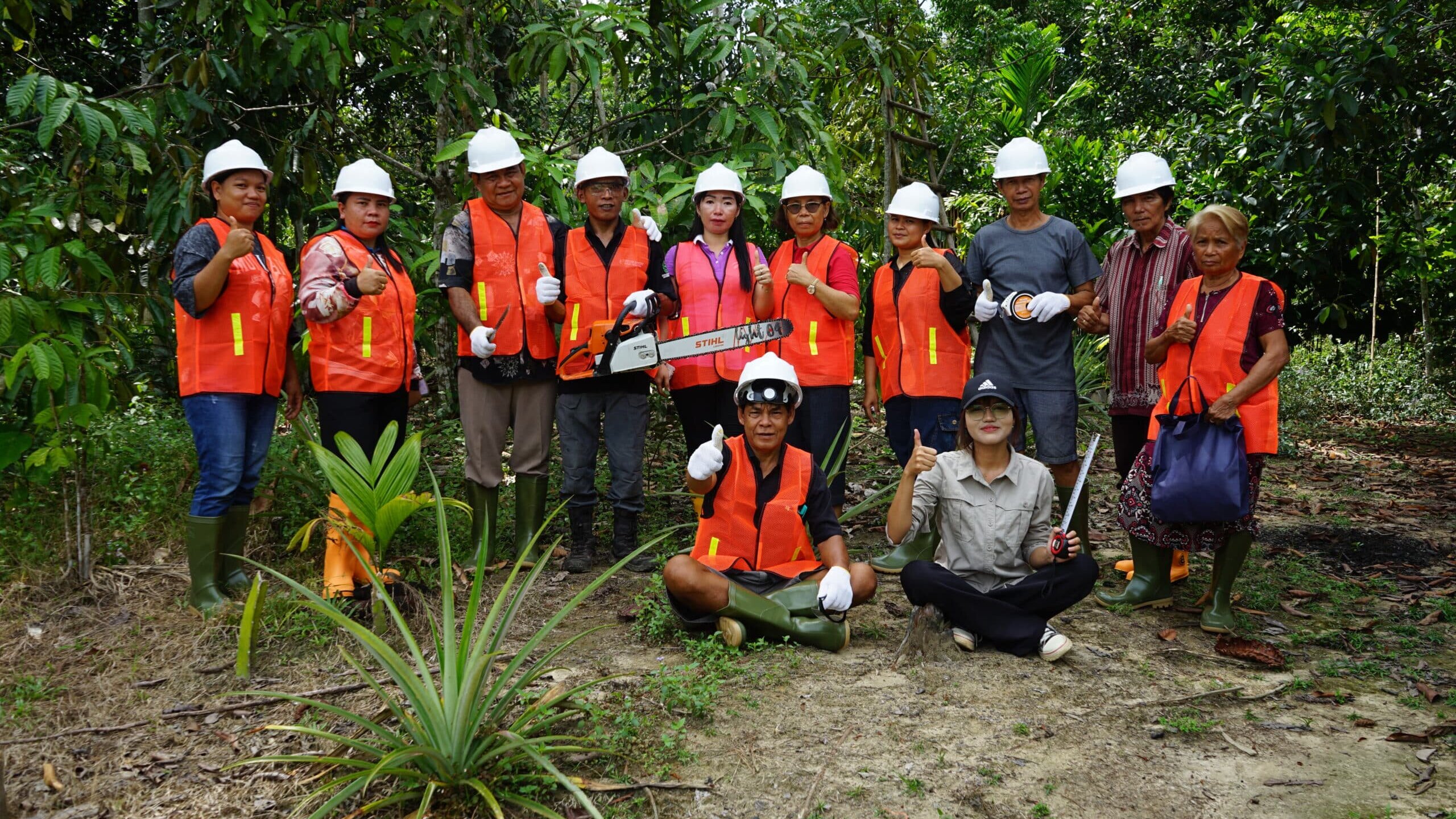
We believe the wellbeing of the planet and the local population go hand in hand. That’s why we don’t just plant trees, but rather combine forestry with agriculture to create ecological but also economic benefits. This means in our holistic approach, local communities generate income, among other things, through sustainably harvesting some of the trees.
In the spirit, we have been recently supporting farmers to specifically gain knowledge about harvesting techniques for the Sengon trees they have planted and nurtured. The training took place in Jalemu Raya Village, Central Kalimantan and covered topics on harvesting techniques and strategies for farmers. They were provided with an understanding and practical skills in sustainable harvesting practices from social, economic, and environmental perspectives.
The activity was divided into two parts: a theoretical explanation session and a practical session on tree logging. Our Timber Value Chain Manager explained the techniques, strategies, and tools for the harvesting characterization of Sengon trees that are accepted by the industry. The farmers were able to ask questions and received a handbook containing all the relevant procedures and documents needed to carry out harvesting. In the end, their knowledge was tested and deepened by asking the farmers questions and discussing them together openly.

“I believe that the timber harvesting and forest management training for farmers is an important step towards achieving sustainable forestry practices and conserving natural resources. This can provide valuable knowledge and skills that can help farmers to make more informed economic and ecological decisions, while ensuring the long-term sustainability of their livelihood and the environment,” our Timber Value Chain Manager explained.
The practical session was teaching farmers how to log Sengon trees. Farmers were provided with safety equipment and given explanations while directly observing the characteristics of Sengon trees that meet the industries criteria for harvesting and selling. Additionally, the logging process was explained by demonstrating the tools needed for it. This session was conducted by the Head of Log Grading from a local timber company from Central Kalimantan.

“I hope that the farmers acquired a deeper understanding of the ecological and economic value of forest ecosystems and the importance of sustainable management. With this knowledge, they can become advocates for the conservation and sustainable use of natural resources in their communities,” explained our Timber Value Chain Manager.